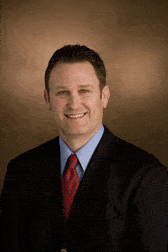Behind the scenes at PMI: Interview with Brian Weiss

I didn’t have the opportunity to meet Brian Weiss, VP of Practitioner Markets for PMI, at Synergy in 2012because Hurricane Sandy stopped him from making it to London. However, since then I have had the chance to catch up with Brian and find out more about his role at PMI. Here’s what he had to say about his job, the virtual communities, and what’s next for certifications.
Brian, can you tell me what a VP of Practitioner Markets does?
I have the privilege and honour of working with more than 700,000 project management professionals who are involved with PMI through membership, credentials and other community and networking programs. The core of my job is to support their professional development and create opportunities to leverage PMI’s vast knowledge and networking opportunities.
There is enormous potential for project management professionals with the right skills and expertise; new reports show that by 2020, more than 11 million new project management-related jobs will be added globally, especially in industries like business services, healthcare and manufacturing. My team and I work with volunteers and subject matter experts from around the world to give project management professionals the resources they need for long-term success. We provide a series of networks that connect them, helping them gain knowledge, work more efficiently, deliver innovation and value to their organizations and expand their careers.
700,000 is a lot of project managers. How do you effectively engage such a large group of practitioners across so many countries?
PMI is an organisation of volunteers, and their passion and dedication are unmatched. We currently have over 8,000 active volunteers on nearly every continent who, in addition to their day jobs, lead PMI’s 270 Chapters, build credentials, develop standards, run PMI’s live events, contribute to PMI’s online communities, help develop self-directed learning resources and even serve on PMI’s Board of Directors.
These volunteers drive PMI’s understanding of different geographies, cultures and environments. They are the foundation of our global community, and PMI’s top priority is to help them perform their roles. Based on their active engagement, PMI has a solid base to effectively engage our existing stakeholders, and ultimately reach the 19 million other project professionals around the world who should be part of that community.
A lot of the engagement happens online now. Virtual communities are a relatively new thing. What’s next for them?
As large as the global project management community is as a whole, each member of PMI is distinct; the more PMI can meet their individual needs as professionals, the more value we’ll be able to deliver. Communities of Practice help us achieve that. Logistically, they increase members’ opportunities to network and gain knowledge by eliminating geographic boundaries. On an individual level, they personalise the member experience by providing forums where members can explore their specific career and industry needs, whether it’s in the form of tools and templates, questions, best practices or simply finding people out there that have the same challenges or have been through it before.
Communities of Practice don’t replace the opportunities that Chapter participation offers; they enhance those opportunities by helping members develop more strongly as individual practitioners. We work with volunteers on an ongoing basis to ensure that as the Communities of Practice evolve, they continue to meet member’s needs.
One of the ways you have been addressing the individual needs of project managers is through eLearning. How have the eLearning programs developed and what’s next for them?
It’s impractical to try to meet the needs of the world’s 20 million project professionals – or even PMI’s members and credential holders – with live events. PMI’s eLearning program developed out of the pronounced need for substantive distributed eLearning offerings. Yes, some already existed; however, when we mapped our research against the needs of employers, we found a significant gap in programs for intermediate and advanced project management professionals.
Given the number of project management jobs that need to be filled in the next decade, this gap is unsustainable. So, we’re going to fill it. Our plans for the next few years involve developing eLearning programs that focus on intermediate and advanced subject matter that will help users more successfully meet the needs of their employers and, ultimately, help their employers meet the demands of the marketplace.
PMI is exploring new ways to partner with its Registered Education Providers (R.E.P.s) and other potential partners to deliver different kinds of eLearning courses. As these partnerships grow, we’ll be able to offer a more broad library of eLearning courses, including more for learners for whom English is not their primary language.
That sounds good. In parallel to that type of learning, many people will want to advance their skills through taking a certificate. Are there any new certifications in the pipeline? Or plans to update any of the certifications?
Since our certifications are developed to reflect the growth of the profession, they are constantly evolving. All of PMI certifications will be updated to reflect the Standards updates between June and July 2013. And two specialty credentials, PMI Project Risk Management Professional (PMI-RMP) and PMI Scheduling Professional (PMI-SP), will be updated 31 August 2013, as a result of recent Role Delineation Studies. These studies produced an updated description of the professional role to reflect the current skills, knowledge and best practices needed to succeed in that role.
PMI continually conducts in-depth studies to ensure that our certification suite is connected to the profession. For example, several studies indicated that the use of
Thanks, Brian!
About my interviewee: Brian Weiss was named Vice President, Practitioner Markets in January 2011. He joined PMI after serving as director of global information products and services for the Hay Group, a leading global Human Resources consulting firm. In that capacity, he was responsible for Hay Information Service’s global corporate team, consisting of brand and product management, application and Web development, strategic alliances and corporate initiatives.
